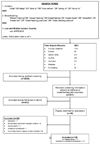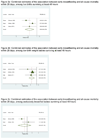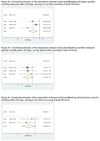Time to initiation of breastfeeding and neonatal mortality and morbidity: a systematic review
- PMID: 24564770
- PMCID: PMC3847227
- DOI: 10.1186/1471-2458-13-S3-S19
Time to initiation of breastfeeding and neonatal mortality and morbidity: a systematic review
Abstract
Background: Early breastfeeding is defined as the initiation of breastfeeding within twenty four hours of birth. While the benefits of breastfeeding have been known for decades, only recently has the role of time to initiation of breastfeeding in neonatal mortality and morbidity been assessed.
Objective: To review the evidence for early breastfeeding initiation practices and to estimate the association between timing and neonatal outcomes.
Methods: We systematically reviewed multiple databases from 1963 to 2011. Standardized abstraction tables were used and quality was assessed for each study utilizing the Grading of Recommendations Assessment, Development and Evaluation (GRADE) methodology. Three meta-analyses were conducted for mortality among babies surviving to 48 hours.
Results: We identified 18 studies reporting a direct association between early breastfeeding initiation and neonatal mortality and morbidity outcomes. The results of random effects analyses of data from 3 studies (from 5 publications) demonstrated lower risks of all-cause neonatal mortality among all live births (RR = 0.56 [95% CI: 0.40 - 0.79]) and among low birth weight babies (RR=0.58 [95% CI: 0.43 - 0.78]), and infection-related neonatal mortality (RR = 0.55 [95% CI: 0.36 - 0.84]). Among exclusively breastfed infants, all-cause mortality risk did not differ between early and late initiators (RR = 0.69 [95% CI: 0.27 - 1.75]).
Conclusions: This review demonstrates that early breastfeeding initiation is a simple intervention that has the potential to significantly improve neonatal outcomes and should be universally recommended. Significant gaps in knowledge are highlighted, revealing a need to prioritize additional high quality studies that further clarify the specific cause of death, as well as providing improved understanding of the independent or combined effects of early initiation and breastfeeding patterns.
Figures





References
-
- Lozano R, Wang H, Foreman KJ, Rajaratnam JK, Naghavi M, Marcus JR, Dwyer-Lindgren L, Lofgren KT, Phillips D, Atkinson C, Lopez AD, Murray CJ. Progress towards Millennium Development Goals 4 and 5 on maternal and child mortality: an updated systematic analysis. Lancet. 2011;378(9797):1139–1165. doi: 10.1016/S0140-6736(11)61337-8. - DOI - PubMed
-
- Liu L, Johnson HL, Cousens S, Perin J, Scott S, Lawn JE, Rudan I, Campbell H, Cibulskis R, Li M, Mathers C, Black RE. Child Health Epidemiology Reference Group of WHO and UNICEF. Global, regional, and national causes of child mortality: an updated systematic analysis for 2010 with time trends since 2000. Lancet. 2012;379:2151–2161. doi: 10.1016/S0140-6736(12)60560-1. - DOI - PubMed
-
- Effect of breastfeeding on infant and child mortality due to infectious diseases in less developed countries: a pooled analysis. WHO Collaborative Study Team on the Role of Breastfeeding on the Prevention of Infant Mortality. Lancet. 2000;355(9202):451–455. - PubMed
Publication types
MeSH terms
LinkOut - more resources
Full Text Sources
Other Literature Sources
Medical

